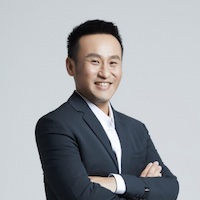Electric vehicles are the future, but the technology still has a major safety issue: battery cells overheating and catching fire. The problem is that lithium batteries generate heat both when charging and discharging, but when overheated, their special chemical composition causes them to burst into flames.
This is already seen as a regular occurrence for EVs – In 2021, a Tesla battery bank in Australia caught fire, and it took firefighters four days to put it out. Data shows that it takes over a ton of water to extinguish an EV battery fire, 100 times more water compared to a gas-fueled car.
Controlling an EV battery’s temperature became a significant bottleneck for the industry. Market leader Tesla and most other top brands use an indirect cooling method in which the battery cells are surrounded by tubes containing coolant to dispel heat. The method’s effectiveness has thus far proved quite limited.
But what if instead the entire battery cell was immersed in coolant? This is known as immersion cooling, and Taiwan-based startup and Cherubic portfolio company XING Mobility is already winning the race on the technology.
We see the same story many times – a startup whose origin is its founder’s own pain points.
Designing cars was always founder Royce Hong’s childhood dream, and his founder journey began in 2015 with the aim of building Taiwan’s first electric supercar. To do so, his team needed a smaller, lighter, high-performance battery that was capable of controlling its temperature. They discovered that although the concept of immersion cooling was already floating around in the ether, no one had yet developed the technology. Funneling its resources into R&D, the startup finally acquired a patent on immersion cooling in 2016, and successfully completed the supercar in 2017. The team was quite surprised to find the battery attracting more attention than the car itself.
Today, their second-generation battery has already entered production and is selling to local clients as well as customers from countries including Japan, Finland, Italy, and Canada and sectors such as commercial vehicles, mining machinery, farm equipment, and logistics vehicles. Another unit of their business is focused on clients that require larger capacity battery cells and stronger temperature control, such as solar and wind power.
The road from concept to development and finally an exceptional product is one every startup has to walk.
There are a few takeaways from XING Mobility’s journey that I want to highlight for founders:
Takeaway 1 – Creativity and the ability to iterate quickly are a startup’s biggest secret weapons. The idea of immersion cooling was out there, but the only reason it hadn’t happened was that it would be very hard to implement and require a lot of resources. But it’s inside these challenges that true opportunities wait.
Takeaway 2 – Developing your concept is hard, but making it into a product that enough people are willing to buy is much harder. XING Mobility’s first generation battery had strong performance, but the costs it took to build it made potential customers shake their heads at the price. To take your product to market, you need to truly understand the customer’s pain points as well as achieve balance between your product’s specs and your financial resources.
Takeaway 3 – Deciding what to do first is more important than trying to do everything. Founders with limited capital need to find their product’s strengths while knowing where they need to make trade-offs.
Instead of plunging themselves into the already highly competitive passenger EV market, XING Mobility found its niche, selling its patented battery technology to customers that need high performance and are willing to pay more to ensure against battery fires. By working with commercial vehicle and construction vehicle makers, who are open to procuring external components, the startup successfully moved itself into the global supply chain.
Now seven years into his entrepreneur journey, Royce is closer than ever to realizing his dream when starting XING Mobility.
“My goal when founding this company was to one day see cars on the road with the words ‘Powered by XING” on them’”, says Royce.
We at Cherubic think that day is soon to arrive.
 Matt Cheng is a Taiwanese venture investor, serial entrepreneur, company advisor, and former junior tennis player. Prior to founding Cherubic, Matt co-founded Tian-Ge in China and 91APP in Taiwan, both went public at over $1B+ in market cap. Matt is also a company advisor to Wish and Atomic VC, as well as an early investor in Ring, Hims& Hers, Calm and Flexport.
Matt Cheng is a Taiwanese venture investor, serial entrepreneur, company advisor, and former junior tennis player. Prior to founding Cherubic, Matt co-founded Tian-Ge in China and 91APP in Taiwan, both went public at over $1B+ in market cap. Matt is also a company advisor to Wish and Atomic VC, as well as an early investor in Ring, Hims& Hers, Calm and Flexport.
This article was originally published on the Cherubic blog and was submitted as an editorial contribution. TechNode Global INSIDER publishes contributions relevant to entrepreneurship and innovation. You may submit your own original or published contributions subject to editorial discretion.

